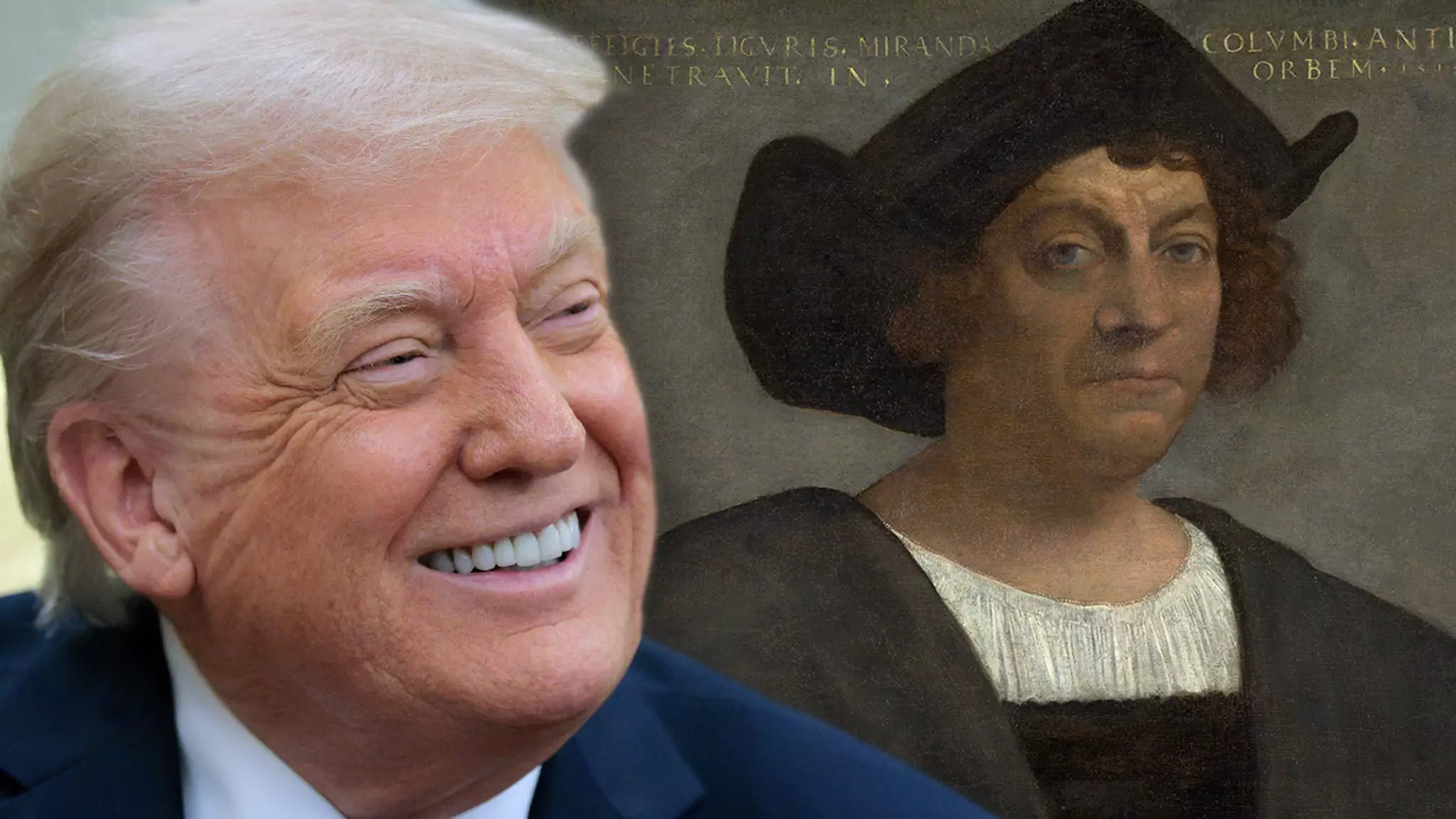In a fervent appeal to his base, Donald Trump has emerged as a self-proclaimed defender of Italian heritage by vowing to reinstate the honor of Christopher Columbus. He recently took to Truth Social, casting a pointed critique of the Democratic party, whom he accuses of tarnishing the reputation of the famed explorer. The narrative he constructs not only invokes Italian pride but also signifies an intersection of cultural identity and political strategy in modern America.
The crux of Trump’s argument is a defensive posture regarding Columbus’s legacy, which he claims has been unjustly vilified. In his proclamations, he emphasizes that a campaign led by various activist groups led to the defacement and removal of Columbus statues, a direct consequence of a broader reckoning with America’s colonial past incited by events such as George Floyd’s murder. By positioning himself as the protector of Columbus’s legacy, Trump is deftly addressing a constituency that feels increasingly marginalized in contemporary sociopolitical discourse.
Political Theater or Genuine Initiative?
Despite Columbus Day remaining a federal holiday, its observance has been challenged by shifts in cultural sentiment that have seen some areas replace it with Indigenous Peoples’ Day. Trump’s plans to reinforce Columbus Day raise questions about whether he seeks genuine recognition for historical figures or if his motives are purely theatrical. It seems that in promoting this restoration, he simultaneously rallies against what he refers to as “woke culture,” wielding Columbus’s legacy like a banner for the conservative movement.
What remains ambiguous is how Trump intends to revitalize the holiday, aside from making grand declarations. Is this an empty promise poised to dazzle constituents without significant backing? Or does it signal an urgent call to action for those who believe history should be commemorated in its complex, multifaceted totality? The phrasing of his intentions implies a desire for fanfare and celebration, suggesting that Trump envisions a spectacle accompanying the return of Columbus Day—perhaps even a rallying cry that pays homage to a simplistic portrayal of history.
Symbols and the Power of Narrative
Trump’s emphasis on Columbus is emblematic of a broader struggle over symbols and narratives in American society. The statues and state celebrations represent not only admiration for a historical figure but also a window into the values and ideologies they embody. While Trump’s defenders will laud his advocacy for Columbus, critics will likely see it as an attempt to dilute the conversation away from Indigenous rights and the complex history that Columbus represents.
In a world increasingly concerned with social justice, the revival of Columbus as a celebrated figure sparks fierce debates. Some will view the potential reinstatement of Columbus Day as a regression—an affront to those who contend that hero-worship neglects the narrative of oppression that accompanied colonization. By positioning himself as the champion of Columbus, Trump ultimately engages in a cultural tussle that underscores the polarized nature of American identity today.
Trump’s promise to restore Columbus Day is not merely about a holiday; it encapsulates the ongoing dialogue around who we honor and why. In many respects, this is a reflection of broader societal debates over heritage, representation, and inclusivity in a nation struggling to reconcile its past with its present. Will the return of Columbus Day elevate a lost legacy, or will it serve to further entrench divisive views in an already fragmented sociopolitical landscape? The unfolding drama promises to engage countless voices as Trump sets the stage for a dynamic autumn of cultural contention.

